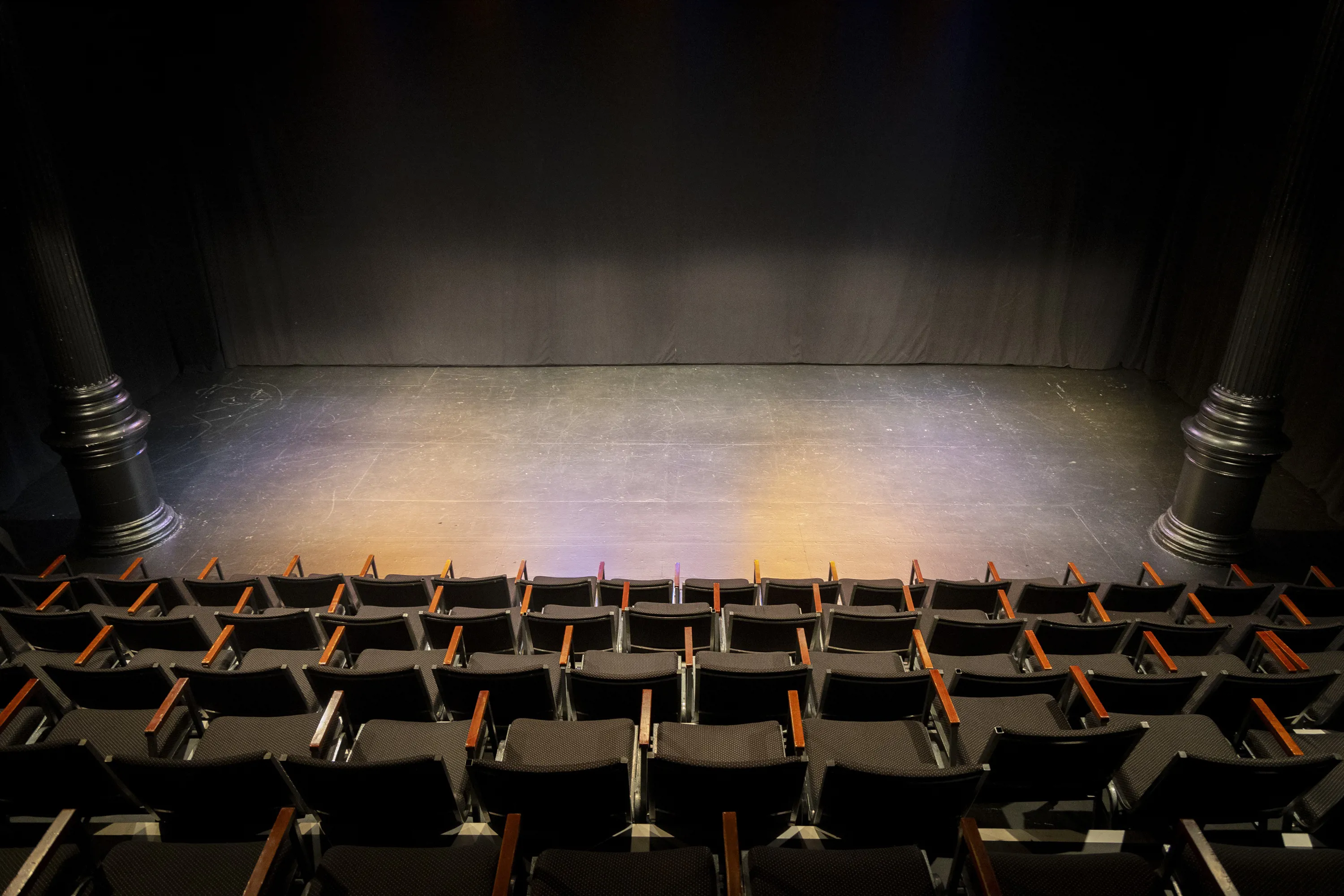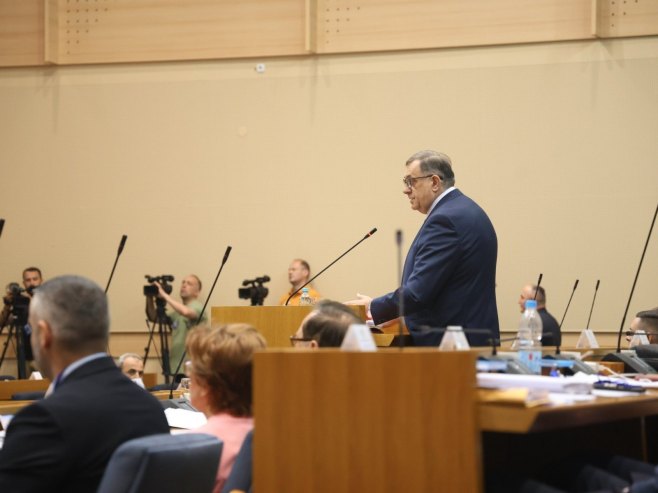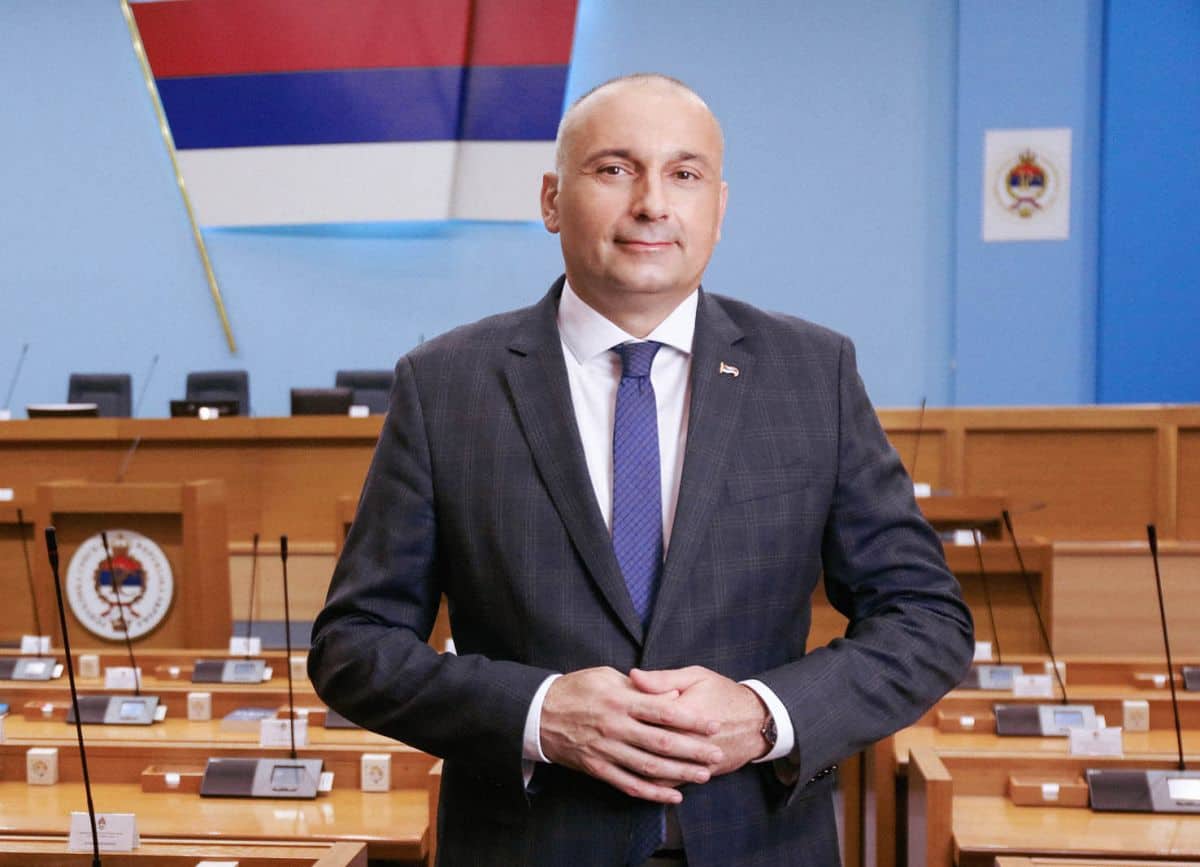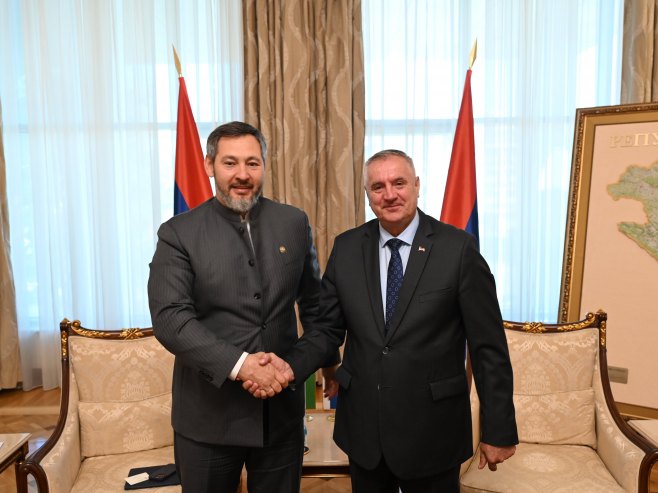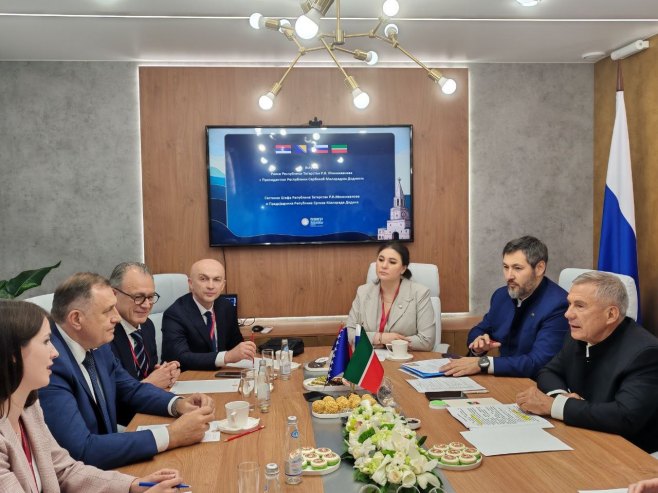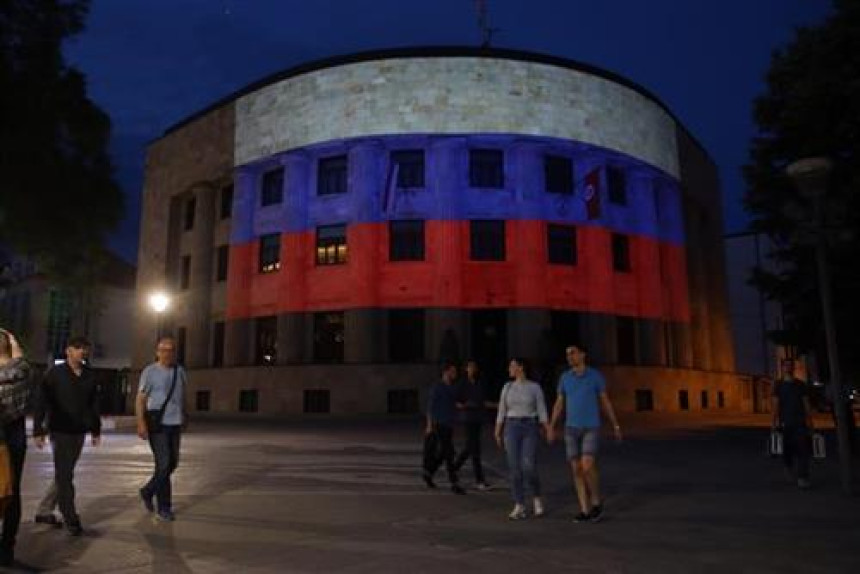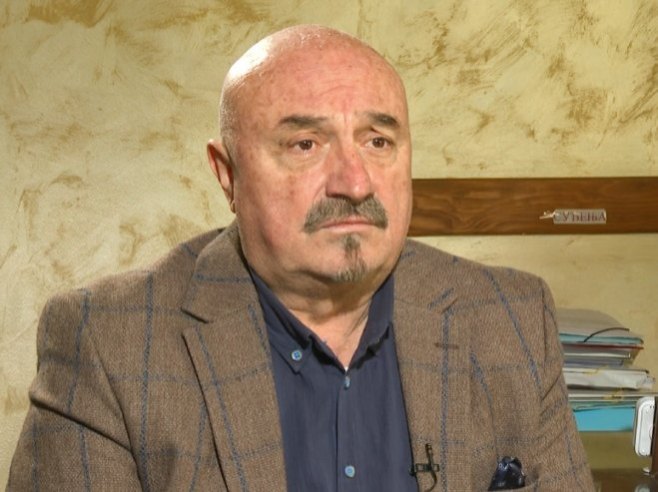The Dayton Peace Agreement is rational, feasible, and the only possible solution in the circumstances we live in. It created a framework in which every people has its place, its identity, and the right to equality, emphasized the President of Republika Srpska, Milorad Dodik.
“The Dayton Agreement is not an ideal document. Ideal things hardly exist in life. But it is rational, feasible, and the only viable option in the reality we live in,” Dodik pointed out.
In order to understand what is being defended, we must return to the agreement that established the Constitution of BiH, ended the war, and brought peace.
“The Dayton Agreement recognized history, legacy, mentality, and existing relations in BiH. It defined a system in which BiH can function as a community of two equal entities and three constituent peoples. The Dayton Agreement created space in which every people has its place, its identity, and the right to equality. The General Framework Agreement for Peace in BiH, with its 11 annexes, signed at the Wright-Patterson Air Force Base in Dayton, Ohio, was not just a political document. It was and remains a constitutional-legal instrument, the foundation, the basis of BiH,” said Dodik.
He reiterated that, according to this agreement, BiH is made up of two entities.
“Republika Srpska and the Federation of BiH. Each entity has its own government, its own legal system, and its own competencies — the right to manage its people, its territory, and its property — in peace. ‘Bosnia and Herzegovina’ is derived from the territory of the entities: 49% Republika Srpska and 51% the Federation of BiH. The agreement did not create a centralized, unitary state. It did not demand that we erase our differences. It gave us balance, not domination. It provided functionality, not fantasy. It gave us peace, not uniformity. To those who doubt this, I invite you to read Annexes I through X. Read the Constitution of BiH as adopted in Dayton. Not interpretations. Not footnotes. The original text,” Dodik said.
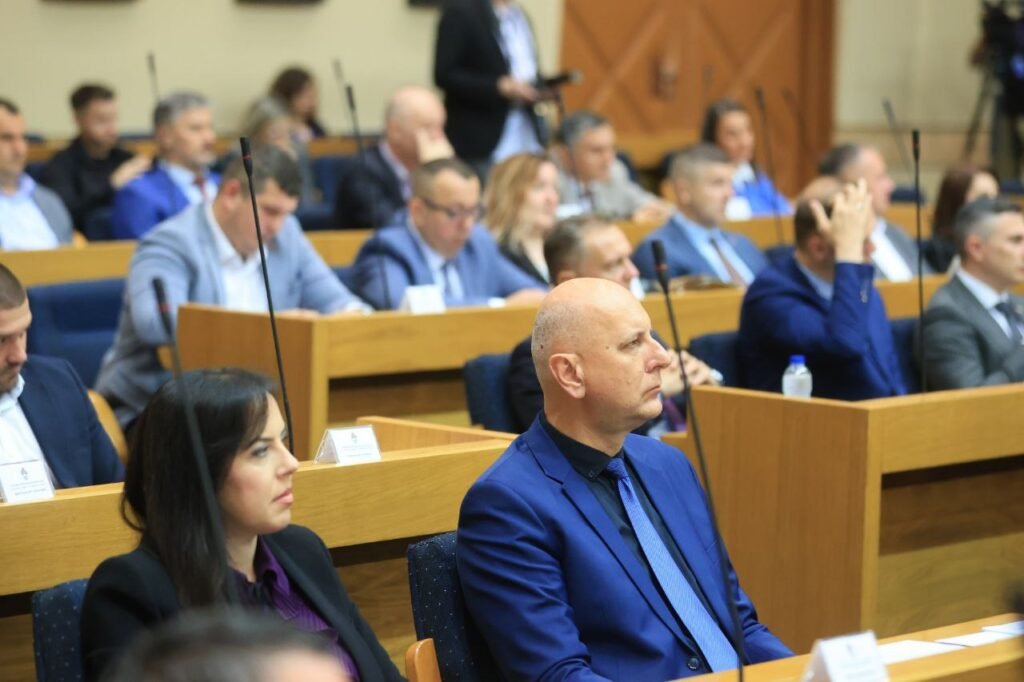
He added that there is no single provision — not one — that gives a foreign, unelected bureaucrat the right to incriminate disagreement.
“There is no provision that allows state property to be confiscated by decree. No provision that reduces Republika Srpska to a subordinate administrative unit. No provision that permits one side to impose solutions on the other. Dayton is a federal-confederal agreement, not a colonial one. Dayton is pragmatic, not utopian. Dayton respected the right of peoples to govern themselves within BiH, not beneath it. For this reason, we consider ourselves originalists of Dayton. What we are witnessing today is the same ideological debate ongoing across the world about constitutions: should they be interpreted as written, or treated as ‘living documents’ subject to the mood and interests of foreign powers? In Republika Srpska, we accept only the text we signed,” Dodik emphasized.
If there is a need to modernize Dayton – we are ready, but not by decree, through dialogue
Dodik stressed that Republika Srpska does not believe that Dayton is dead or has failed, but that it has been distorted beyond recognition by interpretations — by those who never signed it and never respected its principles.
“This is not just our opinion. It is the view of legal experts across Russia, China, Europe, and the United States. It is a reality acknowledged quietly in diplomatic cables and legal opinions. And it is a reality that must now be stated aloud,” Dodik said.
He added: “We are not extremists. We are not obstructionists. We are not undermining Dayton. We are trying to preserve it. We are not just signatories of this agreement — we are a party to it, its guardians and protectors. We are a people who know what it means to fight for freedom because we paid the highest price — the lives of our sons and daughters. Dayton is our armor, our rampart, and our shield against all who think they can erase with one signature, one decision, or one decree what was built with blood. We are not defending only our rights — we are defending peace. And by defending peace, we are defending our people’s right to remain who they are, to speak their language, to celebrate their holidays, to take pride in their history, and to remember and mark their suffering.”
He repeated: Dayton is not just a peace agreement.
“It is the seal of our freedom. It is the promise that Republika Srpska remains permanently woven into this land. We are not just defending our land — we are defending the principles upon which BiH can function as a community of equal peoples. We adhere to what was agreed upon in 1995. We do not accept interventions by unelected and unconfirmed officials who are accountable to no one, who treat our country as their personal project — but it is our future. If there is a need to modernize Dayton, we are ready, provided it is done the right way: not through decrees, not through pressure, not through interpretations or foreign interventions. If it is done through dialogue, through amendments, and with the consent of the signatory parties — not based on the whims of those who arrived decades later,” Dodik said.
Dayton created the foundation for BiH to be a complex sovereign state, not a protectorate
Dayton created the conditions for BiH to be a complex sovereign state in which decisions are made by elected representatives of the people — not a protectorate where the people’s will is subordinated to that of an unelected and illegitimate high representative, Dodik noted.
“Everything in this world has its price. Those who are now tearing down the foundations of Dayton forget that every imposition will eventually backfire. Dayton is the foundation of BiH and the peace within it, and those who destroy that foundation destroy peace and destroy BiH itself. If Dayton was an agreement — a constitution-making accord — then we must honestly ask: who violated that agreement? Who changed its provisions? Who introduced new rules? Who decided that the written word of the BiH Constitution no longer applies? Because it wasn’t us. It wasn’t the citizens of Republika Srpska,” Dodik said.
Republika Srpska never sought to make decisions on behalf of Bosniaks or Croats, he emphasized.
“We never wanted to choose their representatives. Banja Luka never wanted to organize affairs in Sarajevo, Zenica, or Mostar. But likewise, we will never allow them to make decisions on our behalf. Not because we are stubborn, but because it is the will of the Serb people. It wasn’t even the citizens of BiH. It was those who came after the agreement was signed, who gave themselves the right to interpret, reshape, and override it. The most visible face of that subversion today is Christian Schmidt. Let’s speak honestly — not disrespectfully, but honestly. Schmidt was never confirmed by the UN Security Council. According to Annex 10 of the Dayton Agreement, the High Representative must be appointed and confirmed by the Security Council, and before that, selected by the signatories of Annex 10. That never happened,” Dodik said.
He noted that when attempts were made to impose Schmidt at all costs, Russia objected.
“China did not give its consent. Schmidt never received support in the Security Council. That means Schmidt is not a High Representative appointed in accordance with law. Since Schmidt cannot cite a single international treaty, law, or binding act that grants him legitimacy, he is an ordinary citizen issuing decrees without mandate, legitimacy, or accountability. Unfortunately, the other contracting party — the Federation of BiH — accepts him only because his decrees target Republika Srpska in an attempt to dismantle it,” Dodik stated.
“This is not a technical matter. This is a legal and constitutional crisis. Since his arrival in 2021, coinciding with the return of the Biden administration, Schmidt has used self-proclaimed powers to impose criminal laws, suspend budget funding, and threaten elected officials — all without the consent of any parliament, the people, or any international body supposedly regulating his function. This is not only a violation of Dayton — it is a violation of every principle of democratic governance. And yet, just because we pointed it out, just because we demanded that Dayton be respected, the leadership of Republika Srpska has been sanctioned, condemned, allegedly isolated — as they like to say — and accused,” Dodik said.
He concluded: Republika Srpska is clear — this is not about one man.
“Christian Schmidt is not the cause. He is the poster face. The poster face of a generation of ‘nation-builders’ who do not act through military means, but through decrees. Not with tanks, but with a culture of elimination. Not with diplomacy, but with abuse of law — using a veneer of legality to destroy the essence of justice. What we are witnessing today is not accountability — it is ideological imposition. It is what happens when a foreign, unelected official uses self-declared authority to remove elected officials who dare to say ‘no’ to the destruction of an international agreement. It is what happens when democracy is treated not as the will of the people, but as a formality for fulfilling the desires and views of those who consider themselves superior.”
BiH and peace cannot survive on lies; when we defend Dayton, we defend it for all in BiH
“When we defend Dayton, we defend it for everyone in BiH, because as soon as one part of the agreement is ignored, every part becomes vulnerable,” Dodik said.
“I address this message to our Bosniak neighbors, our Croat partners, and our friends in Sarajevo — what we advocate for today is not only in the interest of Republika Srpska. Rule of law, inviolability of agreements, and the principle of consent are not ethnic issues. They are universal values,” the president emphasized.
“As soon as one foreign, unelected official can single-handedly decide what is law, no one is protected anymore — not Serbs, not Bosniaks, not Croats. That is why when we say we must return to the basics, we are not calling for isolation. We are calling to reunite the country around the original covenant — the agreement we all signed. If peace is to last, it must be built on law, not pressure. On consent, not coercion. On dialogue, not decrees. Christian Schmidt may claim to defend Dayton. But every decision he and his predecessors have made has undermined it. That is why today we say: it is time to be honest — this constitutional crisis can only be resolved if everything Schmidt imposed is annulled. That is the position of our National Assembly and our policy. If that is not possible, do not ask us to abandon ourselves,” Dodik said.
He concluded: it is time for the UN Security Council to vote on the legitimacy of Christian Schmidt — for or against.
“Let the international community either confirm him — or reject him. Let us find the courage to face the truth. Because BiH and peace cannot survive on a lie,” Dodik concluded.
Source: RTRS

